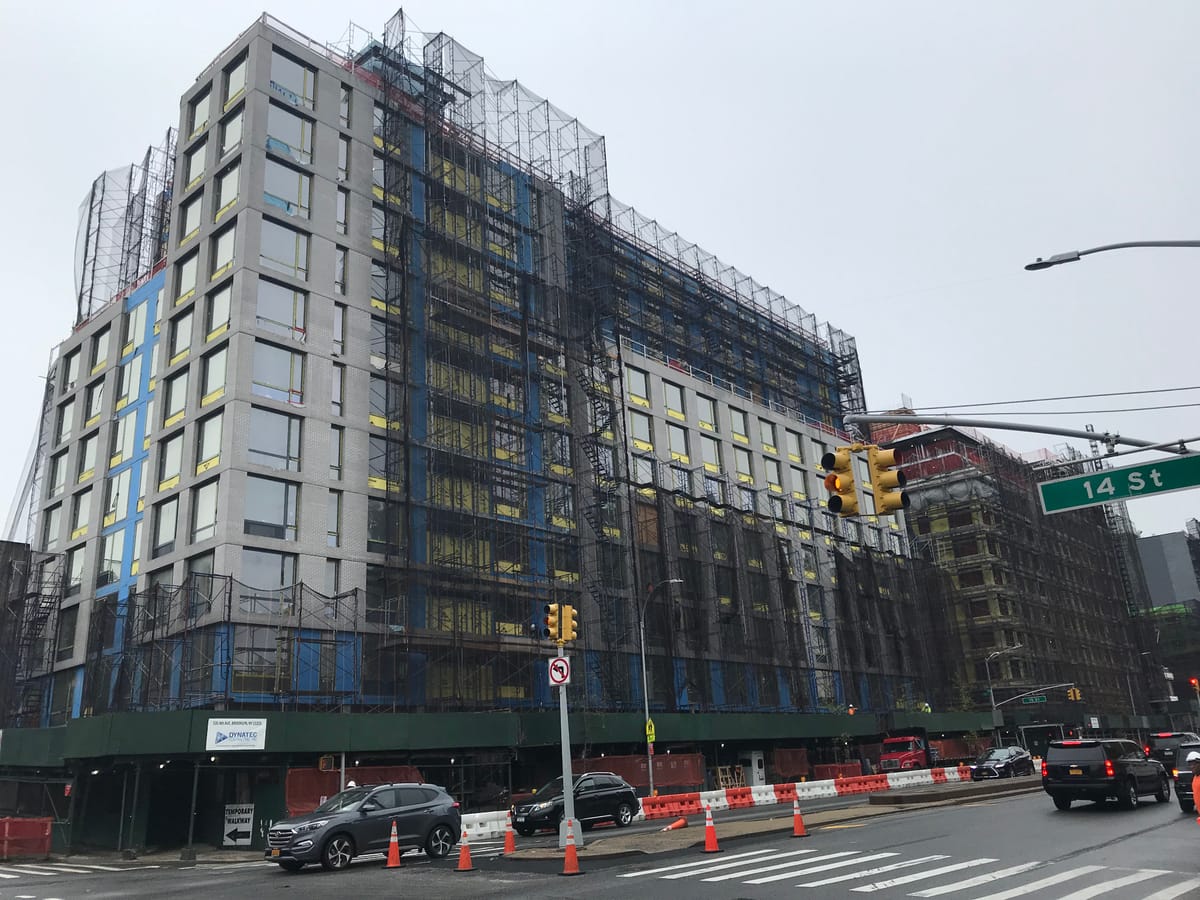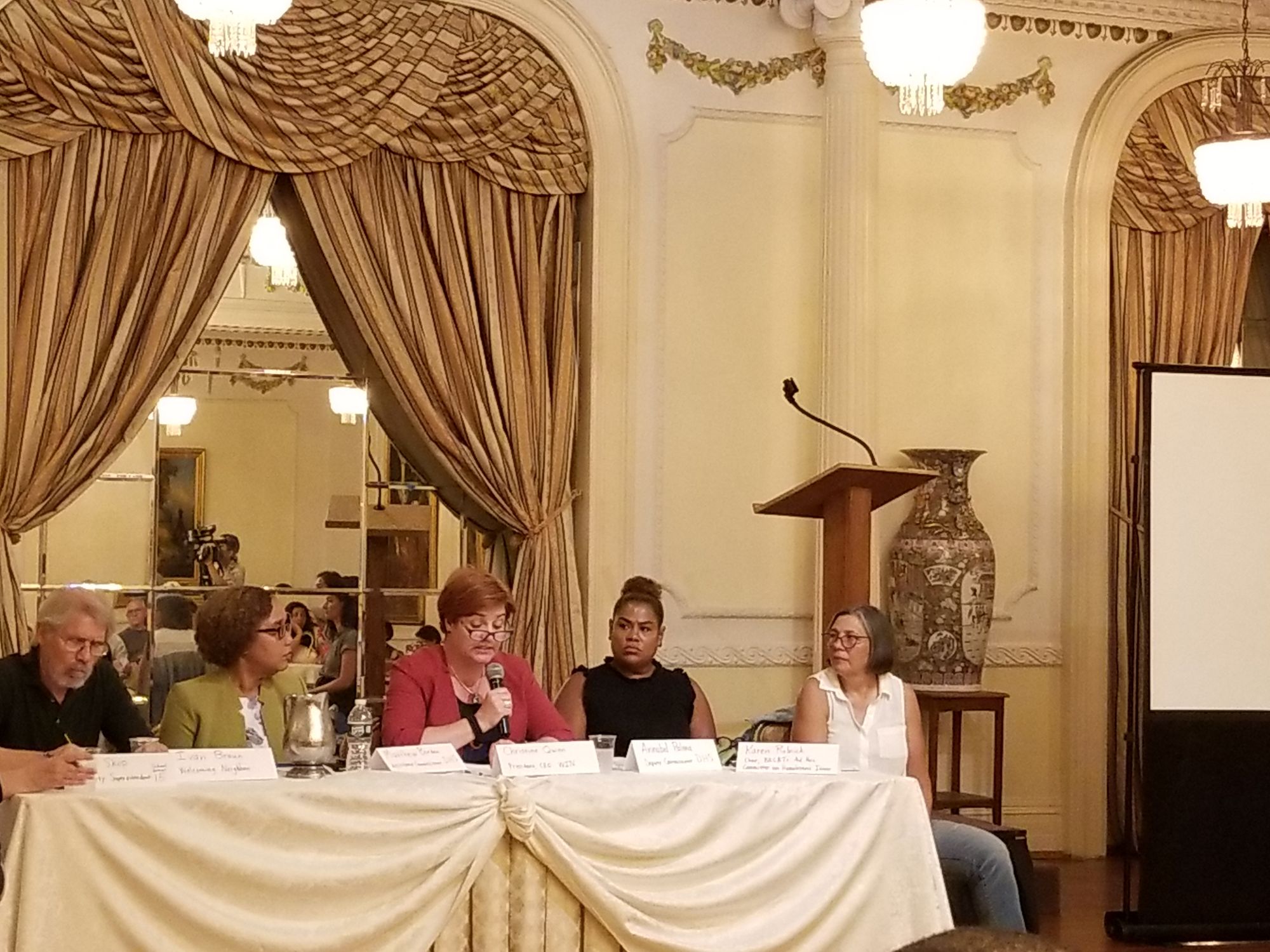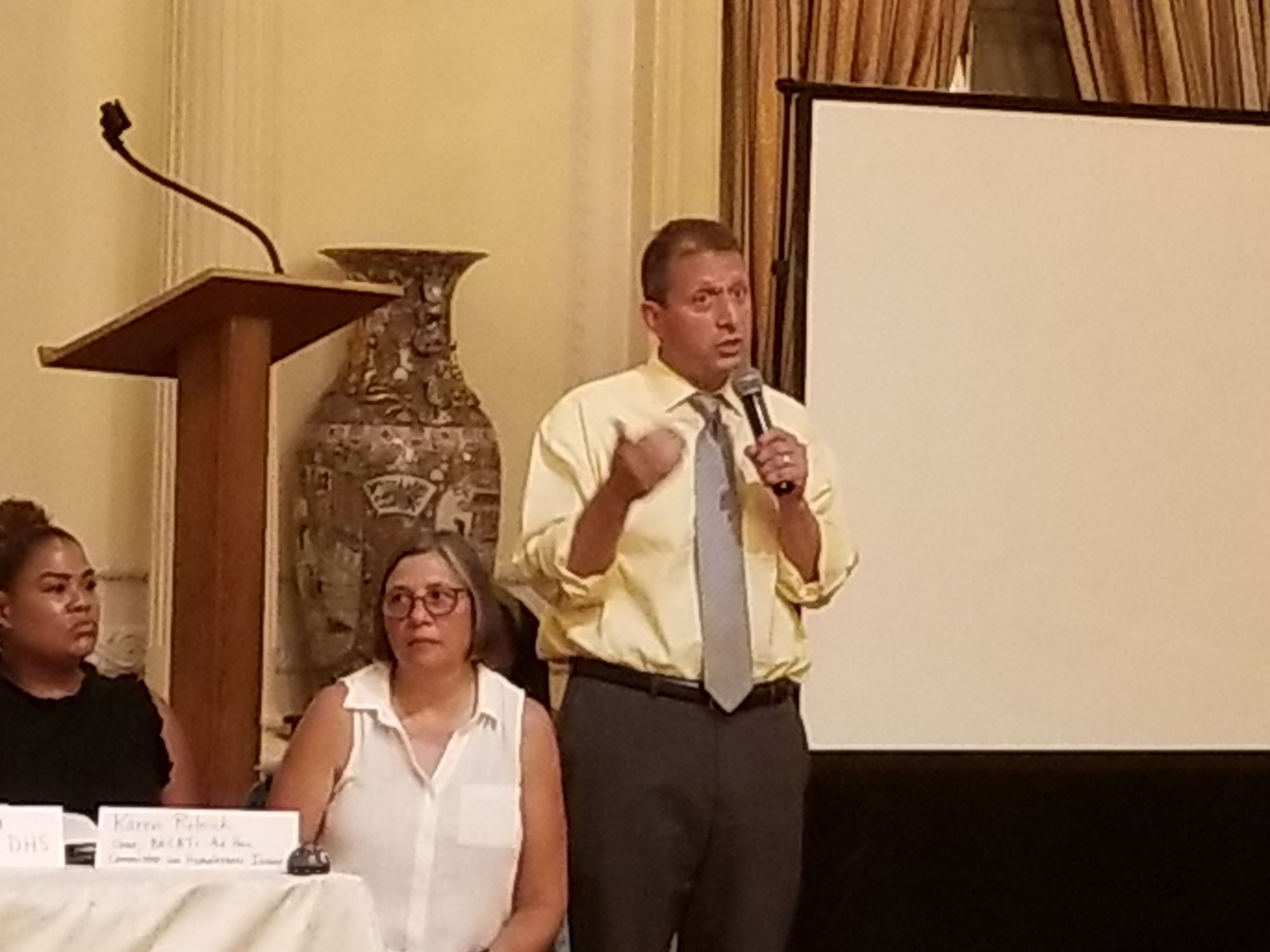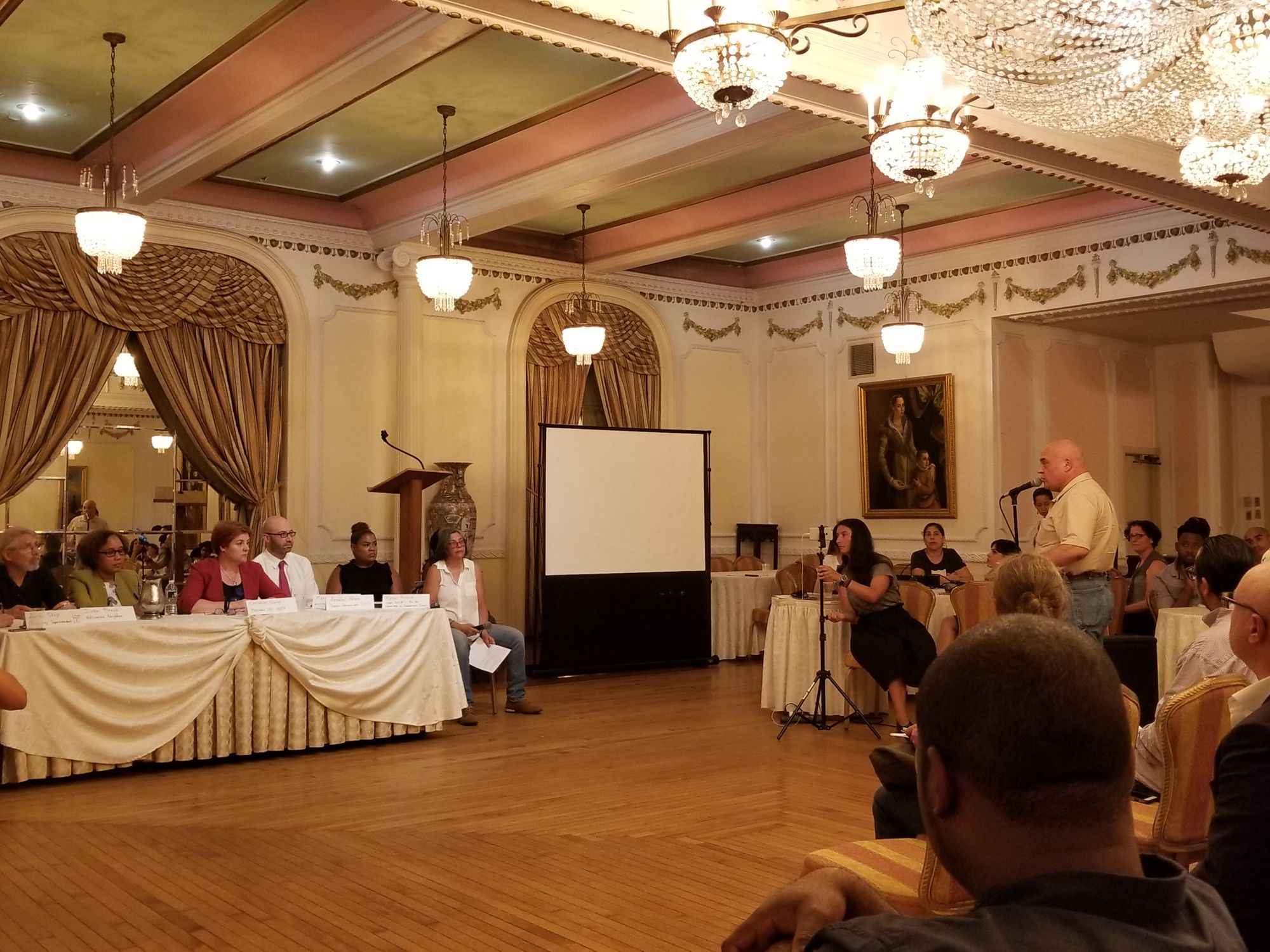Community Board 7 Holds Meeting On 4th Avenue Homeless Shelters

PARK SLOPE – Officials took a grilling from Park Slope residents at a Community Board 7 meeting Tuesday regarding two homeless shelters planned for 4th Avenue.

Christine Quinn, the former City Council Speaker and current CEO of homeless services provider WIN (Women in Need) that will operate the two shelters, endured a round of tough chastising and questioning along with Council Member Brad Lander and other officials. Simultaneously, several Park Slope community members voiced their support for the shelters, eliciting negative reactions from some shelter opponents.
535 4th Avenue, located in Community Board 6, will provide 148 units for homeless families while 555 4th Avenue, in Community Board 7, will provide 105 units for homeless families as well as 26 units of affordable housing.
The two proposed shelters, which will house 253 homeless families when completed, have drawn considerable controversy in the Park Slope community for a bevy of reasons, including the extremely high price tag for the facilities, the lack of transparency regarding the city’s contracts with WIN, and what some deem as corruption and unaccounted-for funds associated with the project. Other grievances include the shelters being “out of place” in the neighborhood.
Department of Homeless Services (DHS) documents provided to Bklyner last month stated that the shelter planned for 535 4th Avenue was scheduled to open in September of this year, while the other, at 555 4th Avenue, would open in December. Nevertheless, at the hearing, Quinn said that the shelters were now scheduled to open in October and after the new year. Quinn did not make herself available to answer questions from Bklyner after the hearing, and did not respond to a request for comment as of publication time.
The total value of the two contracts for the shelters comes out to $261 million, a staggering sum that is only made more stark when it’s broken down to a per-unit cost: about $10,500 per month. The documents peg the unit rents for the two shelters, at 535 and 555 4th Avenue, at $3,500 and $3,600 respectively; the remainder of the costs will be made up by various, “wrap-around” services for homeless women and children, such as job training and childcare.

According to Lander, the high price tag is the cost of a more equitable distribution of shelters among the city’s neighborhoods, rather than concentrating shelters in low-income areas.
“The decision that was made in the “Turning the Tide” report of two years ago was that the city would be willing to pay higher rents so that we could see something more like a fair balance of those units throughout the city,” Lander said. “That’s the decision that was made.”
Shelter opponents opined that they would have preferred affordable housing to be developed at the site rather than a homeless shelter, and derided that the homeless would be housed in luxury condos for a high rent.
“This has nothing to do with homeless people. The issues here have to do with, as far as I can tell, it’s fraud,” said Bo Samajopoulos, a South Slope resident. “Mr. Lander and Mr. de Blasio like to paint me as anti-homeless and ignorant. They like to say that they care about the homeless and the city has a responsibility to the homeless people. They don’t talk about their responsibility to the taxpayers.”
There was also a sizable contingent of shelter proponents present, and the testimony provided was roughly evenly split between those supporting and those opposing the facilities. While the opposition was mainly neighborhood based, the supporters were composed of both community residents and residents from other areas, such as communities that have welcomed homeless shelters.
John Alvarez, a South Slope resident who lives two blocks from 535 4th Avenue, testified in support of the shelter, and castigated opponents as “disingenuous” for supposedly not being as energized in support of Section 8, rent stabilization, or organizing against “greedy landlords.”
“If this is your first time getting involved in affordable housing, why is it about this one thing?” Alvarez asked. He added that while he has qualms about the buildings’ developers, Slate Property Group and Adam America, he doesn’t “want to hold homeless families hostage as a result.”

The hearing only lasted about an hour and a half, at which point the venue, Grand Prospect Hall, closed, and several people who intended to speak were not given the chance to do so or to ask their questions. Among those was Daniel Price, a member of Fourth Avenue Neighbors who last month accused the city and WIN of having $73.7 million funded in excess of the shelters’ costs padded into the contract. Price now puts the number at $113.4 million, a number he arrived at after a Freedom of Information Law (FOIL) request landed him the contracts for WIN shelters in East New York.
“When city officials try this hard to suppress legitimate questions and conversation, including by importing people from halfway across the city, rather than letting actual residents of the neighborhood ask honest questions, it is obvious that they are trying to hide morally repugnant—and possibly criminal—conduct,” Price told Bklyner in a statement.
Price calculated the discrepancy by tabulating an estimated monthly cost of services per unit at WIN’s East New York shelter, adding those costs onto the rent at the Park Slope shelters, and then subtracting from the total contract value. Because the contracts for the Park Slope shelters are still not finalized, Price was not able to obtain them in a FOIL request; as a result, the number he landed on is not an exact final total of what he believes is being skimmed off the top.
Lander, in an interview with Bklyner, dismissed Price’s claims as unfounded. “Maybe next month he’ll say there’s $213 million [unaccounted for],” he said.
“If people have a track record of combating homelessness as an issue broadly citywide, or attending to corruption in contracting as a citywide issue, then that’s one thing,” he said. “If all people have focused on as the focus of their concern about homeless contracts and corruption is the one within a few steps of their house, it’s less clear if their focus is really on systemic issues.”




